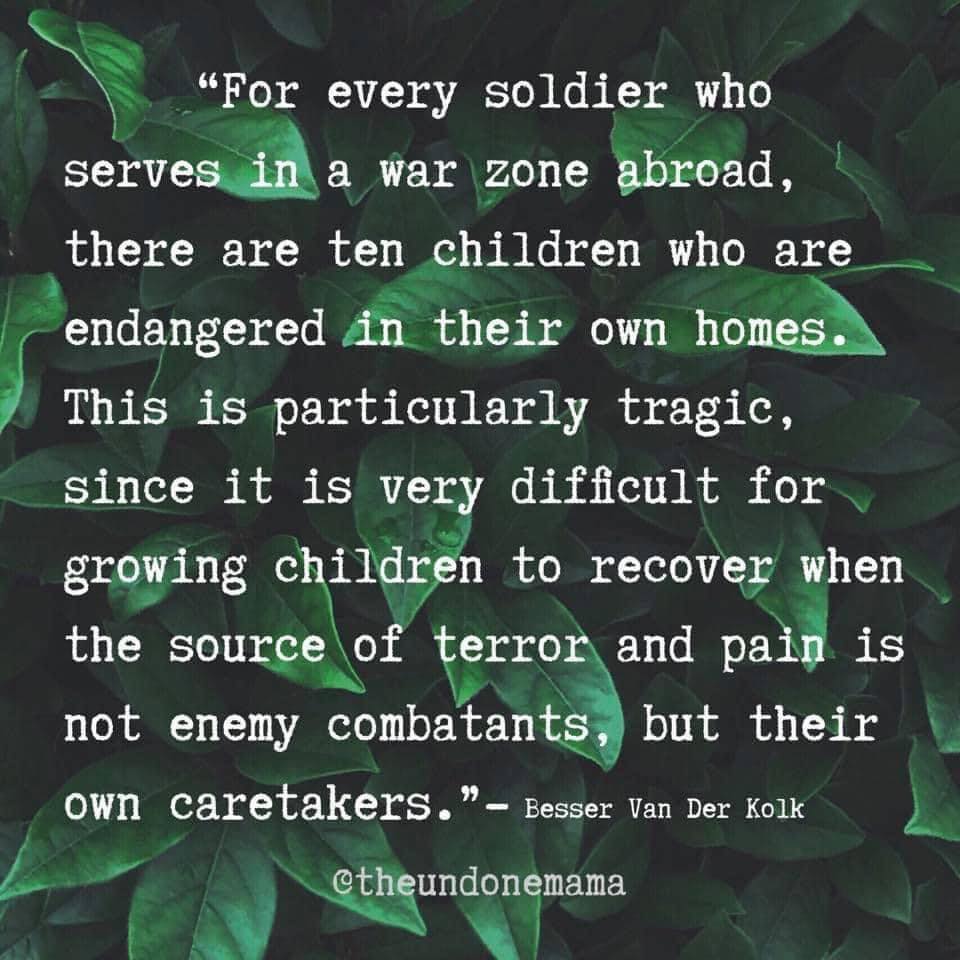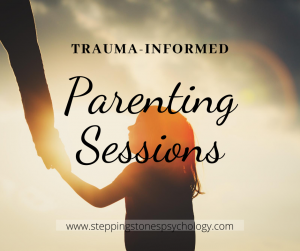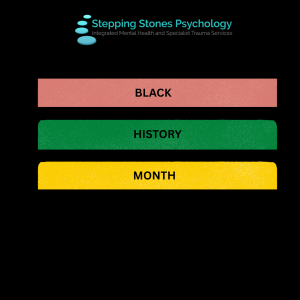Trauma comes in many forms, and PTSD don’t only happen when soldiers have been to war. For children, the most profound trauma can happen at home, in the very place where they should feel safest. When a primary caregiver or attachment figure causes fear or harm, the impact can be deep and long-lasting. It is obviously important to validate that pain and injustice, especially because what they feel is real, and it matters.
At the same time, many parents are struggling with their own trauma, including Complex PTSD. Living with this can make parenting feel overwhelming, confusing, very challenging and even shameful. Parents may feel guilty or embarrassed about their struggles, yet acknowledging these challenges is a crucial step toward healing, both for themselves and for their children.
I often see clients who, after sharing their vulnerable experiences of how their parents made them feel, feel guilty about it. They often express that their parents were lovely too and that they don’t want to make them out to be monsters or entirely bad. I reassure them that, as a trauma therapist, I will not judge their parents or view them negatively. I explain that that being trauma-informed is not selective. It applies across the board, whether I am working with a client who grew up in a difficult home environment, or with a parent whose mental health issues, own unresolved trauma or difficult attachment history contributed to that environment. I aim to understand how trauma shapes behaviour in all individuals, while keeping safety, accountability, and healing at the forefront.
The way I work is trauma-informed, attachment-based, and compassion-focused, but this doesn’t mean I justify or excuse harmful behaviour. When a parent’s actions have been abusive or neglectful, I acknowledge the harm caused, without minimising it. At the same time, I also make sure that this is done without shaming, judging or criticising the parent.
Trauma is complex and often intergenerational, but with support, understanding, and care, both children and parents can find ways to feel safer, cope more effectively, and begin to heal.
If you are a parent yourself and you may have read all the parenting books and watched educational videos about attachment and child development. Done all this to help you prepare for the exciting, but sometimes anxiety-provoking, new chapter in your life.
You have paused to read this post. You may be reflecting. You may be worried.
You may have lived through a tricky childhood and are concerned about how your own difficult experiences may impact your parenting.
As one expectant mum once told me:
“I definitely can’t overlook the fact my childhood will impact my own parenting and want to make sure I work through that now so it doesn’t… I want to make a good start at least.”
You probably feel something similar if you had a challenging childhood, wanting to parent differently from the way you were parented, wanting to give your child the love, safety, and guidance you may have missed.
Growing up with trauma, we often survived by shutting our emotions down. But when we become parents, this is when it hits us hard: Our children can be our biggest triggers. On an unconscious level, our children may remind us of what we didn’t receive as children. For many years, we blocked those unmet needs by burying them deeply.
Even when we don’t understand our reactions, and even when they make no sense, our behaviour still comes from somewhere. Parenting through trauma is challenging, but also a beautiful opportunity. Our children give us a chance to look deeply within ourselves, to make sense of our past, and to understand how it shapes our feelings, thoughts, and behaviour today.
Parents who have experienced a difficult childhood and carry unresolved trauma may find certain parts of parenting particularly challenging. This might include:
• You find it difficult to being emotionally present and offering warm, engaging connection
• You might find it difficult to setting limits, boundaries, and structure
• You might struggle with attunement and active listening, which can feel uncomfortable
• You may struggle to play with your children, and generally with being relaxed and present when being playful. Instead this makes you feel uncomfortable
• You may respond to your child in ways that feel punitive (intentionally or unintentionally)
• You may be at your worst when uncontrollable triggers come out of the blue
• Your children’s loud noises, when they are crying or playing, can make you feel on edge or make you shutdown
• Your children’s physical touch can make you feel uncomfortable or unsafe
One of the most common worries for parents with past trauma is how they respond during or after a trigger or emotional flashback. These moments can feel overwhelming and even belittling. Many parents in this situation have experienced complex childhood trauma, domestic abuse, or have a diagnosis of PTSD or Complex PTSD. Their goal is often to break, or at least minimise, generational trauma.
We know that attachment disruptions, unresolved loss, and past trauma can affect parenting. However, having a safe space to explore and make sense of these experiences, alongside learning trauma-informed parenting tools, techniques, and resources, can help you move forward in your parenting journey. By healing yourself, you become a stronger, more resilient, and more present parent.
This was exactly the motivation behind my previous programmes like Phoenix Rising Pre-Parenting Programme, Parenting with a History of Trauma Level 1 and 2. It was developed for parents who have lived through difficult childhoods, through trauma (however you define it), whether through abuse or neglect. You did what you needed to survive, and you are now out on the other side and stepping into parenthood. You made it through with courage, bravery, and fierce determination. You are working hard as a parent to raise your children, whether they are toddlers, teenagers, or young adults.
No matter how much we prepare, through books, therapy, or parenting classes, it is still very hard to truly be ready for parenthood. Everything remains theoretical until you hold your baby for the very first time. Nothing can completely prepare you; it’s a bit like reading a driving theory book versus actually getting behind the wheel.
It has been nearly five years since I last offered these programmes with the wonderful Wendy Andrews, but I know how valuable they are and that they are very much still needed. This is a topic close to my heart, particularly as a mum with lived experience of parenting while navigating the challenges of trauma. I sometimes still consider whether to resume the programmes in their original format or to offer them as a self-led course. Watch this space! If you feel comfortable, I would love to hear which option you think would work best. You are also welcome to send me a private message with your suggestion if you prefer.
Here are the feedback from clients who attended our previous programmes:
https://www.facebook.com/media/set/?set=a.2360585917578431&type=3
https://www.facebook.com/media/set/?set=a.2331516417152048&type=3
©Sharmi Gowri-Kriszyk under Stepping Stones Psychology




